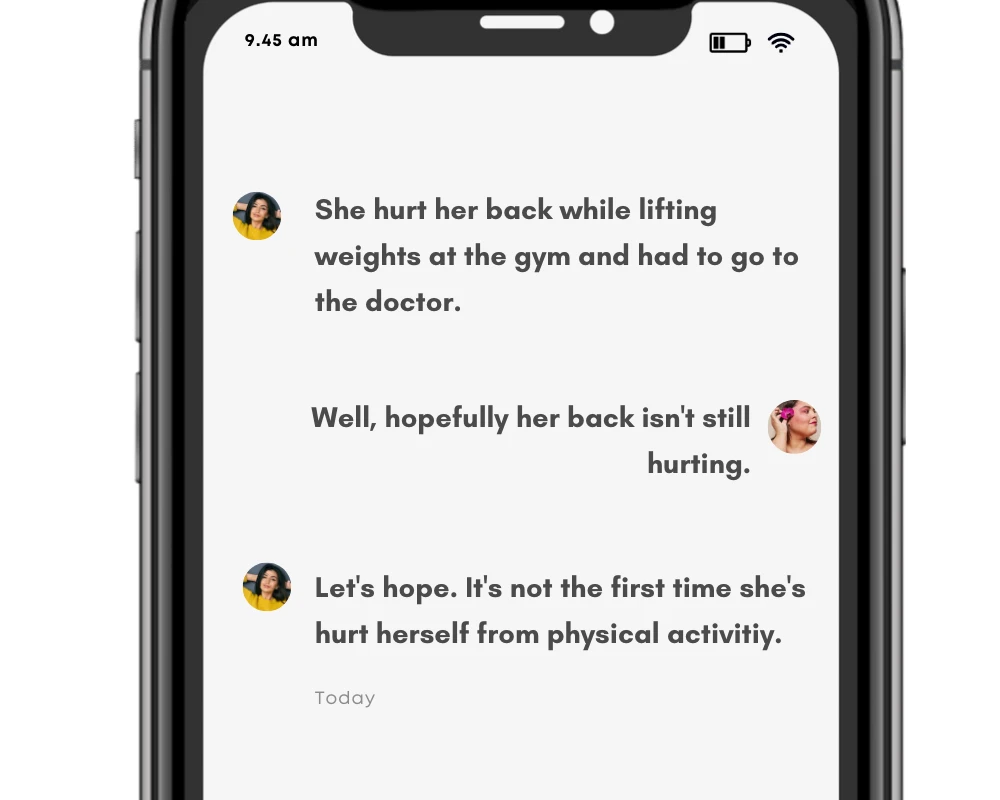
What's the past tense of "hurt"?
The simple past tense of hurt is hurt, and the past participle is also hurt. Hurt is one of those irregular verbs that remains the same in all three forms: present, past, and past participle.
Definition of hurt
The Oxford English Dictionary defines hurt as "to cause physical pain or injury to someone or something; to cause mental or emotional pain."
- The past tense of hurt is hurt.
- The past participle of hurt is hurt.
Verb forms of 'hurt'
Is "hurt" a regular or irregular verb?
The verb hurt is irregular. Its past tense and present or past perfect), instead of adding the typical "-ed" ending that regular verbs use.
When to use "hurt"
I hurt my back while carrying heavy boxes up the stairs.
I had hurt my back while carrying heavy boxes up the stairs.
The verb hurt uses the same form for both simple past tense and present or past perfect), it requires an auxiliary verb like have, has, or had. The simple past doesn't use a helper verb since it's a complete tense, so hurt can stand alone in sentences, whereas participles require an auxiliary verb.
Similar irregular verbs
Sentence examples: hurt, hurt, hurt
• His collar bone only hurt when he lifted his arm.
• My back still hurts.
• Be careful with that knife or you could hurt yourself.
• The blow to his pride hurt most.
• I hurt my back while carrying a heavy box up the stairs.
• The sudden glare hurt his eyes.
• Yasin had seriously hurt himself while trying to escape from the police.
• They were dazed but did not seem to be badly hurt.
• He had badly hurt his leg from playing basketball.
Think "hurt, hurt, hurt": The present, past, and past participle forms of 'hurt' are the same.
Synonyms & nearby words
Synonyms for hurt
Nearby phrases
Origin of the verb "hurt"
c. 1200, "to injure, wound" (the body, feelings, reputation, etc.), also "to stumble (into), bump into; charge against, rush, crash into; knock (things) together," from Old French hurter "to ram, strike, collide with" (Modern French heurter), a word of uncertain origin.
— Etymology Online
Practice: “Hurt” conjugations
She ______ her ankle while running yesterday.
He has ______ his back in a car accident.
If you ______ yourself, tell the teacher.
His words ______ her feelings.
She has never ______ anyone intentionally.
Advertisement
Advertisement
Recent Posts

Adjectives That Start With F (Definition, Examples & Quiz)

How to Use Correct Punctuation in English Writing (A Guide)

How to Use Parentheses (Lesson, Examples & Worksheet)

How to Use Fight Past Tense (Irregular Verb Conjugations)

How to Use the Past Tense of Feel (Explained, Usage & Quiz)

How to Use Predicates in Sentences (Lesson & Quiz)

How to Use the Past Tense of Hear (Explained, Usage & Quiz)
.webp&w=3840&q=75&dpl=dpl_13tcGbrn5BXPQFsQmuQWqib9Y3DN)
